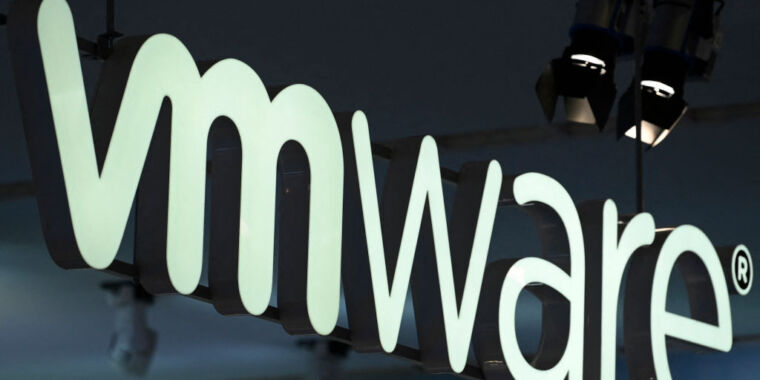You will own nothing, and you will like it.
lol, make me
I’m super glad I recently made the switch to XCP-ng for my home lab hypervisor.
I mostly use lightweight virtualization with containers and jails at home. I have one BHyVe VM, but I plan to eliminate virtualization completely. It’s a waste of resources for my setup.
The enshittifications will continue until morale improves
but just think of the brief moment of incredible profits before people migrate to other options.
I think a lot of enterprises are going to look at RHEV and Proxmox now. Broadcom will squeeze so little out of VMware thinking they can convert per seat licenses, it’s baffling to me why they decided to do this. Do all these companies want to spend $2 to make $1 all the sudden?
Watch: in a year they’ll offload it to private equity.
Watch: in a year they’ll offload it to private equity.
and that’s the kiss of death for any company
I think a lot of enterprises are going to look at RHEV
I don’t think so, because:
Development of RHV has ceased and as of August 2020 the product is now only receiving maintenance updates, with extended life phase updates provided until 2026.[8] The successor to RHV is Red Hat’s OpenShift container platform.
https://en.wikipedia.org/wiki/Red_Hat_Virtualization
Proxmox
I’m no expert btw, but from what I understand (from speaking with others and researching for my own homelab setup) is that LXD/Incus is now the preferred solution over Proxmox. LXD is faster, the CLI is very good, it has a huge library of ready to run Linux distro images which is convenient, and it runs on top of your favorite distro, which makes it easy to install/setup, more flexible, and more compatible (Proxmox runs an old and custom kernel, which may not be fully compatible with new hardware).
Proxmox is a decent option, or just use kvm provisioning directly with ansible.
So many companies can’t do this.
Proxmox is not a complete replacement for VMware. Proxmox still does not have a distributed resource scheduler or distributed power management for it’s cluster which means the only time a VM will move between nodes is if a node goes down.
There’s no official support for VDI within proxmox and all the third party tools are janky at best, definitely not ready for enterprise level deployments.
Nvidia does not officially support vGPUs on proxmox. You can get it working but it’s definitely not something you’d want to run on production.
Good thing I just dumped them for proxmox.
Ah another company ruining the company they just acquired
They paid $61B for it, they’re going to do everything in the book to make it back.
They won’t
They could kill VMware while trying though. Seeing a worthy competitor rise through the ashes would be nice.
I tasked my VAR to find out what our pricing is going to look like in 2024 when our support agreement is up. They said VMware is a mess right now, do t expect a response soon. I need time to migrate and decide if I’m sticking with on-prem or moving god damn workloads to some cloud. This is a fucking shitshow. I fucking hate shareholders.
decide if I’m sticking with on-prem or moving god damn workloads to some cloud
Well, if you really want to burn through a lot of money really fast, and don’t want to think of any other option at all, then yeah.
This is the best summary I could come up with:
Broadcom has moved forward with plans to transition VMware, a virtualization and cloud computing company, into a subscription-based business.
However, in May, soon after announcing its plans to acquire VMware, Broadcom CEO Hock Tan signaled a “rapid transition” to subscriptions.
For years, software and even hardware vendors and investors have been pushing IT solution provider partners and customers toward recurring revenue models.
VMware’s blog this week listed “continuous innovation” and “faster time to value” as customer benefits for subscription models but didn’t detail how it came to those conclusions.
A CRN report in late November pointed to VMware partners hearing customer concern about potential price raises and a lack of support.
Howdyshell, CEO of Advizex, which reportedly made $30 million in VMware-tied revenue in 2022, told the publication that partners and customers were experiencing "significant concern and chaos” around VMware sales.
The original article contains 711 words, the summary contains 141 words. Saved 80%. I’m a bot and I’m open source!
Anyone know if QEmu or any other solutions 3D support is near or as good as VMWare Workstation yet?
Gpu passthrough, if you can do that will always be most performant.
If you want the qemu/kvm equivalent of what vmware workstation does, than look into virtualgl, which is very good (a wine port on android uses this to get good performace without direct access to host hardware), but it still may not be everything you want.















